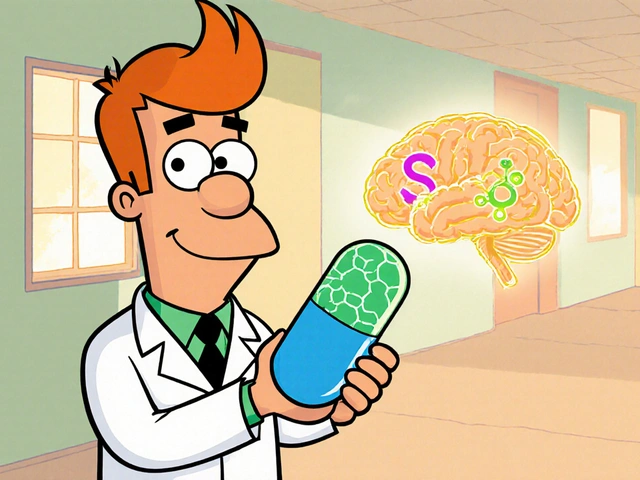Dietary Benefits
Food affects how you feel, how medicines work, and how quickly you recover. This tag collects practical guides and clear examples showing dietary benefits for people managing conditions or using drugs. Read on for simple rules, real food tips, and links to articles that dig into specific cases.
Start with the basics: whole foods, moderate portions, and consistent meal times. Vegetables, lean proteins, whole grains, healthy fats, and water give steady energy and support healing. Small changes often beat big temporary fixes.
If you take medicines, consider two things: absorption and interaction. Some drugs need fat to work right; others must avoid certain herbs or foods. For example, isotretinoin absorbs poorly on a very low fat diet, so a small snack with healthy fat can improve effectiveness. And herbal supplements like St. John's wort or kava can change how antidepressants work, sometimes dangerously.
Want to get more from food without guessing? Use these quick checks. Check labels for added sugars and sodium. Pick fiber-rich carbs like oats, beans, and whole grain bread for lasting energy. Include a source of healthy fat—olive oil, avocado, or nuts—when taking fat-dependent drugs. Timing matters: some medicines ask for food, others work best on an empty stomach.
If a drug label or your doctor gives special rules, follow them and ask why they matter. Bring a list of supplements and foods you eat to appointments so your clinician can spot risks.
Beyond drugs, food helps with sleep, mood, inflammation, and weight control. Try simple swaps: fruit instead of candy, yogurt for sugary snacks, and grilled fish instead of fried options. Small steady wins lower inflammation and often reduce pain and fatigue.
Want stories or deep dives? Look at our posts tagged here. Read the isotretinoin piece for how diet affects drug absorption, the herbal interaction guide for mixing supplements with imipramine, and the yoga article for diet-plus-mind tools that help mood. We also cover blood pressure drugs, antibiotics, and practical food tips across many condition pages.
Quick shopping plan: make a list, buy whole ingredients, avoid ready-made sauces, and pick frozen vegetables for busy weeks. At home, cook once and use leftovers, portion meals into containers, and keep healthy snacks visible.
If you have special diets—diabetes, kidney disease, or allergy—get tailored advice from your clinician or a dietitian. Don't stop medicines without talking to a professional.
Use this tag as a starting point: read specific posts, try small changes, and ask questions at your next appointment. Examples: adding an avocado slice with a pill, choosing low sodium canned goods, or swapping soda for sparkling water cut risks and often help meds work better.
If you use supplements, bring labels so doses and ingredients are clear; many plant extracts affect liver enzymes and change drug levels. We update articles regularly, so check back for new evidence and practical tips that match current guidance. Questions? Use the site search or contact us to find posts about your medicine or condition and get clear dietary ideas.




